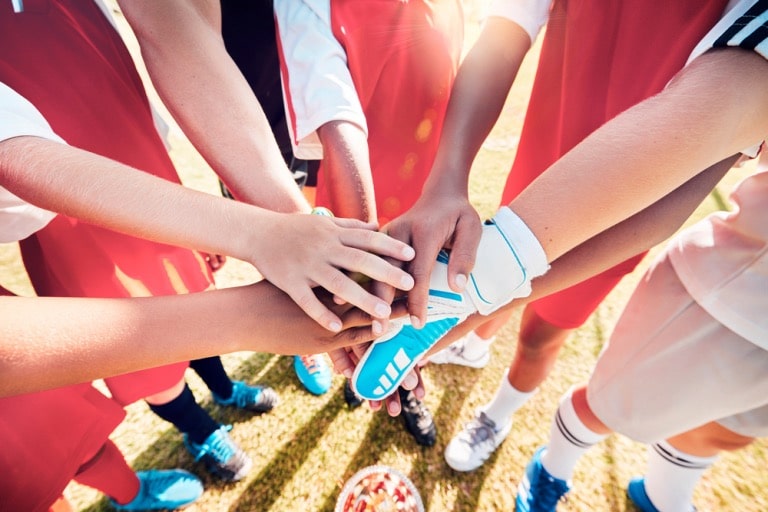Numerous studies have shown a strong correlation between participation in school sports and improved academic performance. This connection is not merely coincidental, but rather a result of the multifaceted benefits that school sports can provide to students. As they navigate the challenges of academic life, students who engage in extracurricular athletic activities often find themselves better equipped to excel in the classroom. And it is not a problem for them to pay for homework on an unloved subject in order to better prepare for the competition.
The benefits of participating in school sports go beyond the physical aspect, extending into the realms of cognitive development, time management, and overall well-being. By understanding the intricate relationship between sports and academic success, educators and policymakers can work to create an environment that fosters the holistic growth of students.
The benefits of participating in school sports
Engaging in school sports offers a wealth of advantages that can positively impact a student’s academic journey. Some of the key benefits include:
- Improved Physical Health: Regular physical activity associated with school sports can lead to improved cardiovascular health, muscular strength, and overall fitness. This physical well-being can contribute to increased energy levels, better sleep, and enhanced cognitive function, all of which are essential for academic success.
- Enhanced Cognitive Abilities: Studies have shown that regular physical activity can stimulate the growth of new brain cells, improve neural connectivity, and enhance cognitive functions such as memory, attention, and problem-solving skills. These cognitive enhancements can directly translate to improved academic performance.
- Increased Motivation and Discipline: Participating in school sports requires dedication, self-discipline, and the ability to set and achieve goals. These skills can be transferred to the academic realm, helping students develop a stronger work ethic and a greater sense of motivation to succeed in their studies.
- Improved Time Management: Student-athletes often have to juggle the demands of both sports and academics, which can lead to the development of effective time management skills. This ability to prioritize and manage their time can be invaluable in helping students excel in the classroom.
The impact of physical activity on brain function
The connection between physical activity and academic performance is not just anecdotal; it is supported by a growing body of scientific evidence. Regular physical activity, such as that associated with school sports, has been shown to have a direct impact on brain function and cognitive abilities.
One key mechanism behind this relationship is the increased blood flow and oxygen delivery to the brain during physical activity. This enhanced cerebral perfusion can stimulate the growth of new brain cells, improve neural connectivity, and enhance the brain’s overall efficiency in processing information.
Sports and its effect on discipline and time management
Participating in school sports requires a significant investment of time and effort, which can have a profound impact on a student’s ability to manage their responsibilities effectively. Student-athletes must learn to balance the demands of their athletic commitments with the requirements of their academic studies, often leading to the development of strong time management and organizational skills.
This discipline and time management skills acquired through sports can be directly applied to the academic realm. Students who participate in school sports often demonstrate better time-budgeting abilities, improved task prioritization, and a greater capacity to meet deadlines. These skills can translate to higher levels of academic achievement, as students are better equipped to manage their workload and stay on top of their studies.
Teamwork and leadership skills gained from school sports
School sports provide a unique environment for students to develop essential teamwork and leadership skills that can positively impact their academic performance. Through participation in team-based activities, students learn to collaborate, communicate effectively, and resolve conflicts – all of which are crucial skills for success in the classroom and beyond.
When working towards a common goal, student-athletes learn to trust their teammates, listen to different perspectives, and coordinate their efforts to achieve success. These teamwork skills can be applied to group projects, classroom discussions, and other academic settings, allowing students to contribute more effectively and work more cohesively with their peers.
In addition to teamwork, school sports often offer opportunities for students to develop leadership skills. Student-athletes may be called upon to take on roles such as team captains, coaches, or mentors, where they must learn to inspire their peers, make strategic decisions, and take responsibility for the success of the team. These leadership experiences can translate to the academic realm, where students may be called upon to lead study groups, organize class presentations, or take on other leadership roles within the school community.
The positive influence of sports on mental health and well-being
Participation in school sports can also have a profound impact on a student’s mental health and overall well-being, which can, in turn, positively influence their academic performance. Regular physical activity has been shown to alleviate symptoms of anxiety and depression, improve mood, and enhance self-esteem and confidence.
The social interactions and sense of community that come with being part of a sports team can also contribute to a student’s emotional well-being. By forming strong bonds with their teammates and coaches, student-athletes may experience a greater sense of belonging and social support, which can be crucial for maintaining a positive mindset and managing the stresses of academic life.
Conclusion
The connection between school sports and academic performance is complex and multifaceted. Numerous benefits can positively impact a student’s educational journey, from improved cognitive abilities and enhanced time management skills to the development of teamwork and leadership qualities. The advantages of participating in school sports are undeniable.








